
Play Movie
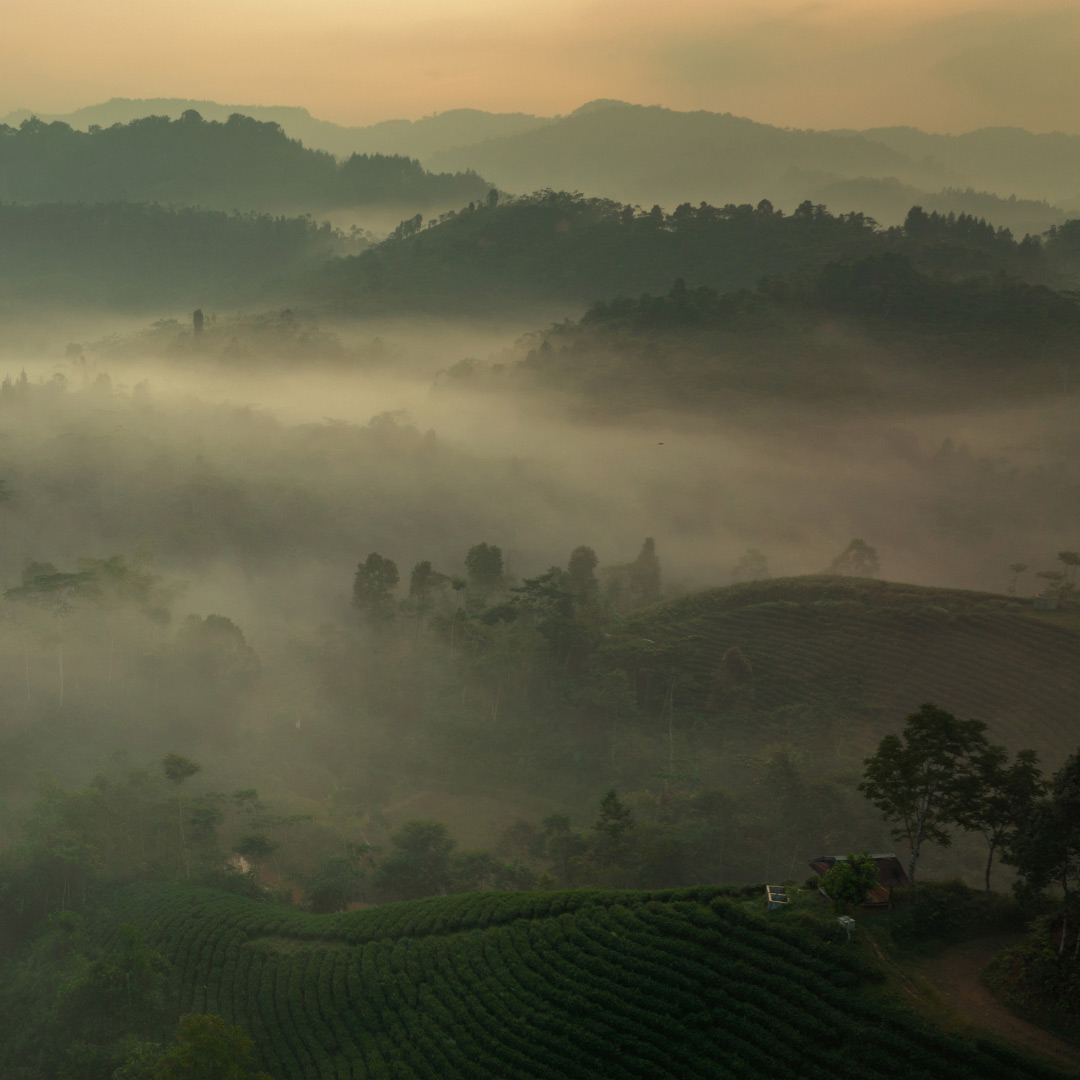
Listen
to Katherine Kennard
reading this story
Indonesia’s oldest tea plantation
Mount Halimun
The long drive from Jakarta to Mount Halimun is filled with twists and turns, up and down hilly roads and broad tracks. Slowly, we leave the capital behind, with its endless cacophony of beeping horns, palpable pollution, congested streets and intricate sprawl of dwellings, which begin to fade away in the rear-view mirror. As the teeming expressways transform into quiet and increasingly winding rural roads, the contrast couldn’t be more marked. Here, in a conservation area in Indonesia’s West Java, nature’s untainted essence is omnipresent. Rich shades of green bloom and unfurl as far as our eyes can see; the lusher the landscape becomes, the rougher the roads feel as our car wheels bump over the rugged terrain.
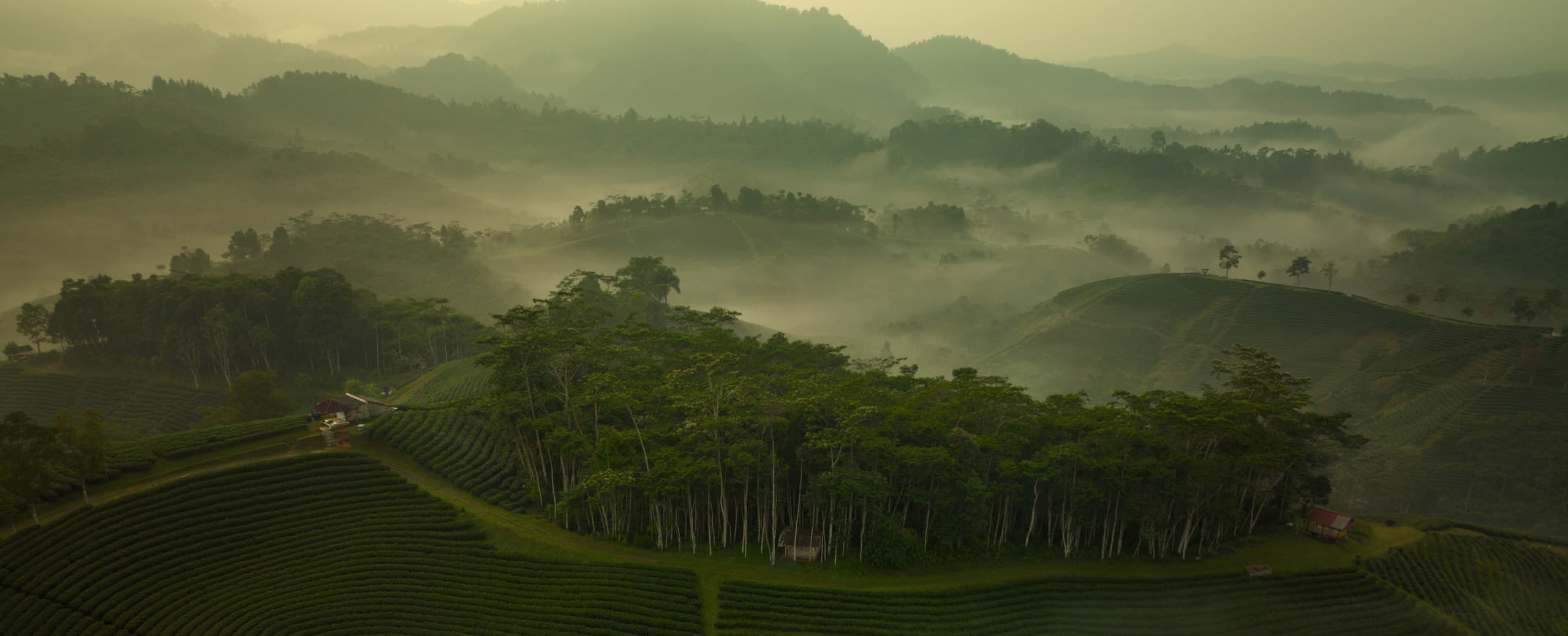
Accompanying us on this eye-opening journey is Leo Schwarz, one of the co-founders of the tea and food brand East Java & Co. Alongside his wife and co-founder, Yasmin Sandytia, he sources their range of delicate organic teas from the plantation at which we are about to arrive. Yasmin, who grew up in Java, is the creative force behind the company, whereas Swiss-born Leo is the strategic and managerial head. The pair previously lived in London – Yasmin working as a fashion illustrator and Leo in the banking industry – before feeling a need for change and returning to Yasmin’s roots. What started as a small venture from their kitchen has morphed into a fine food brand offering more than 50 organic and single-origin products, each embodying the essence of the company: authentic, high-quality ingredients made in Indonesia.
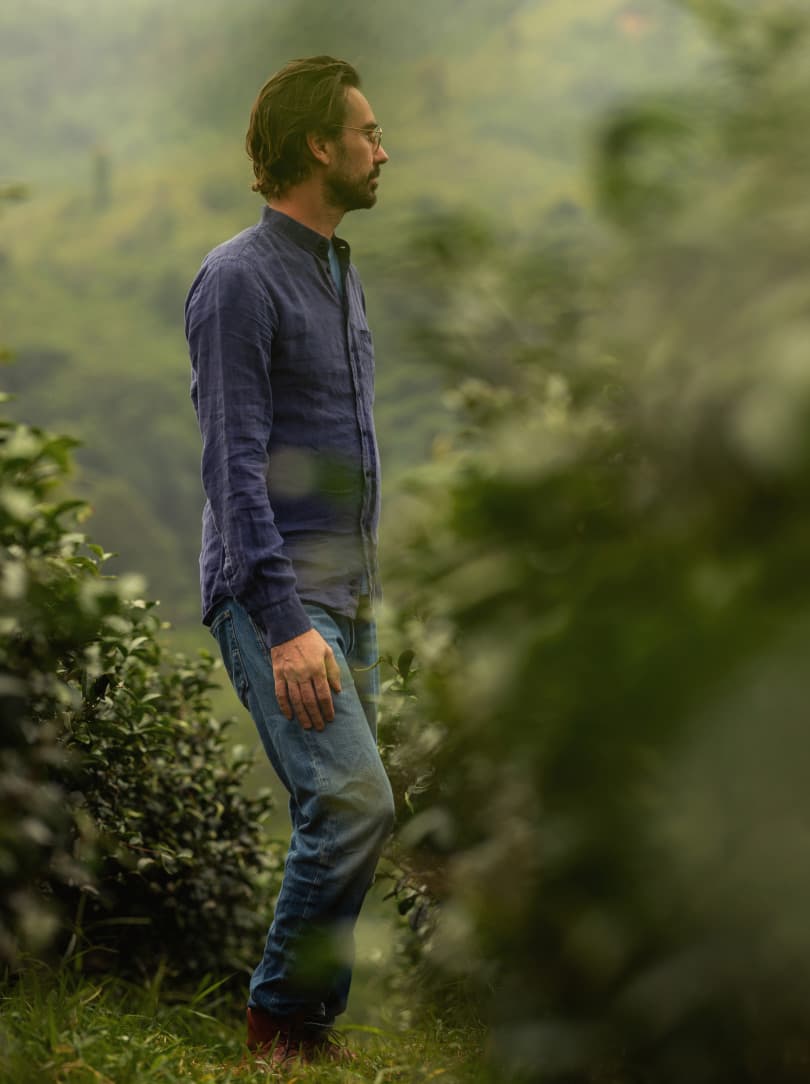
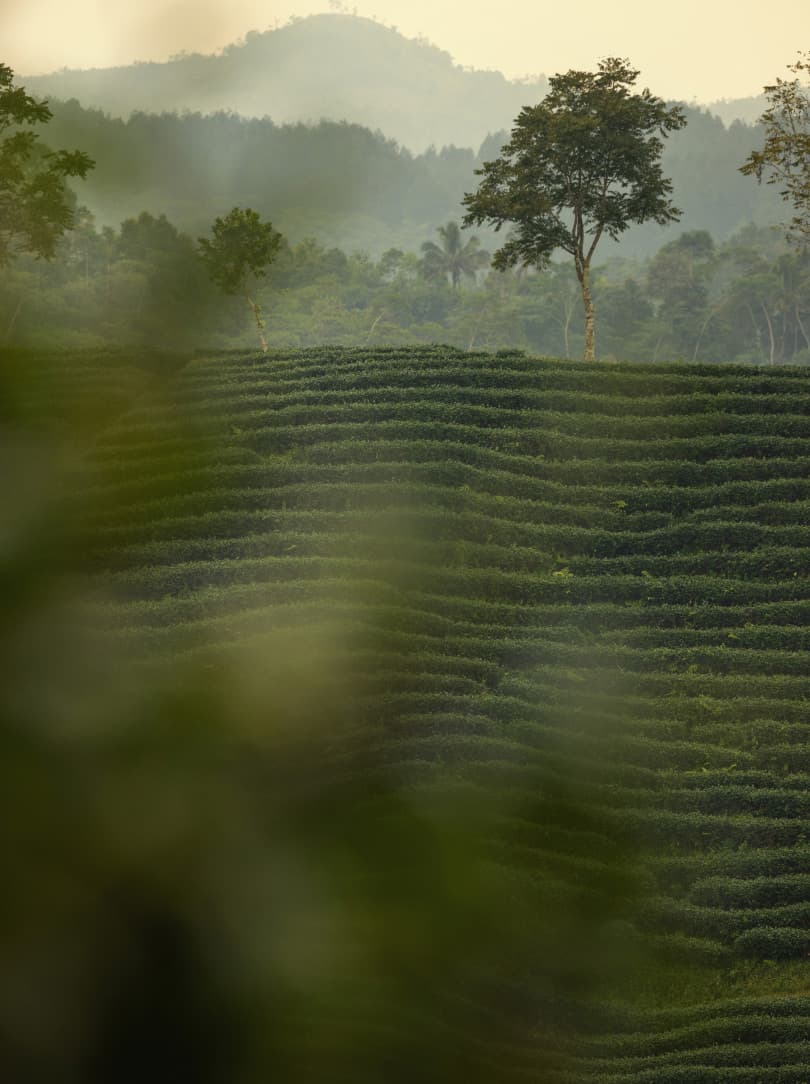
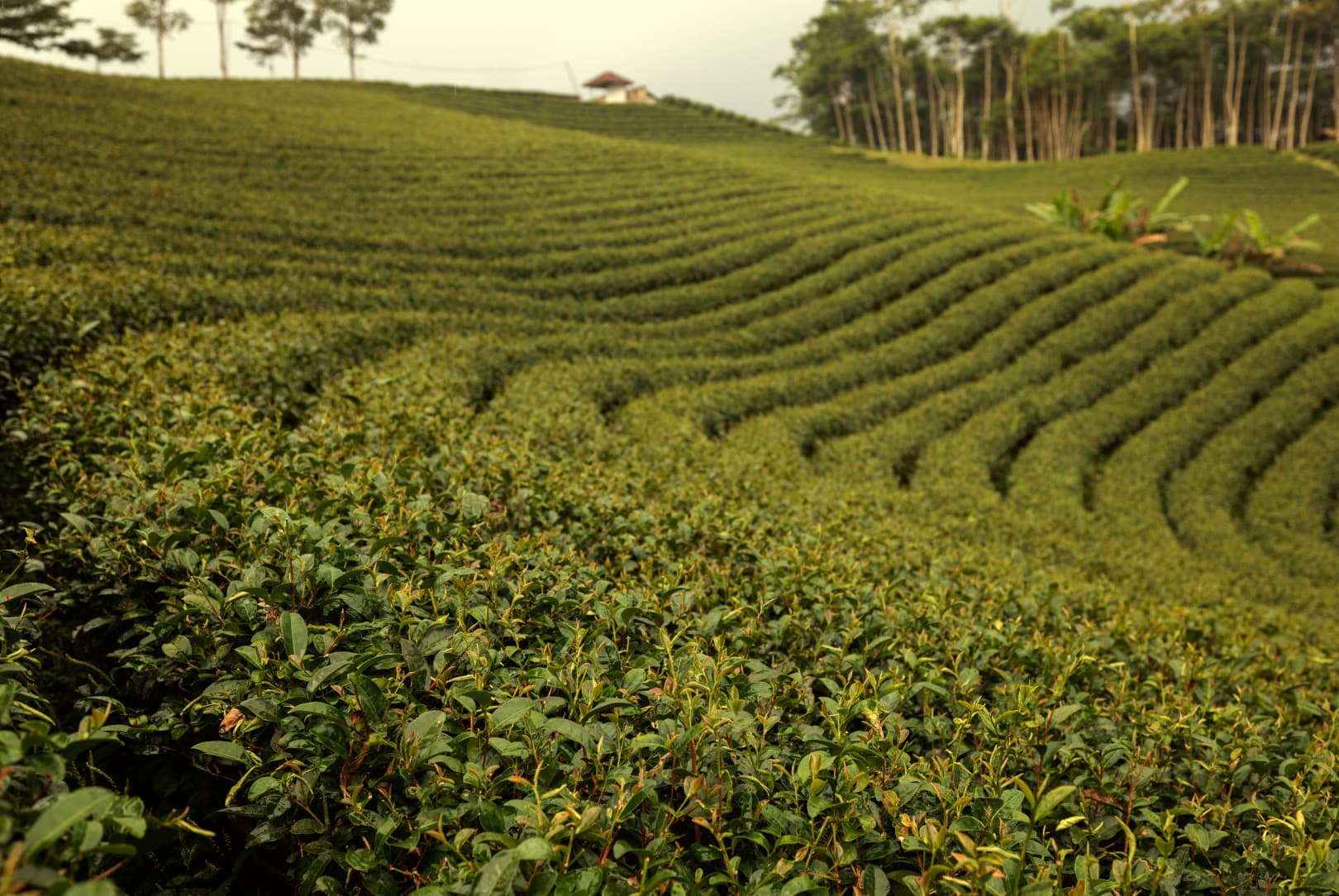
Once on Mount Halimun, we are overcome with a sense of serenity that feels both familiar, yet long forgotten. We feel this even more intensely as the day awakes early the next morning, in this remote, rural landscape with no industrial sounds, just peace. There is an enchanting sense of magic woven into the moment of dawn, when darkness and light converge for their first daily encounter. A gentle coolness envelops the surroundings and the air is imbued with a hint of dewiness, awaiting the sun to infuse its warmth. The anticipation becomes palpable: we are ready for the darkness to lift so we can discover how the hilly tea plantation looks and feels at sunrise.
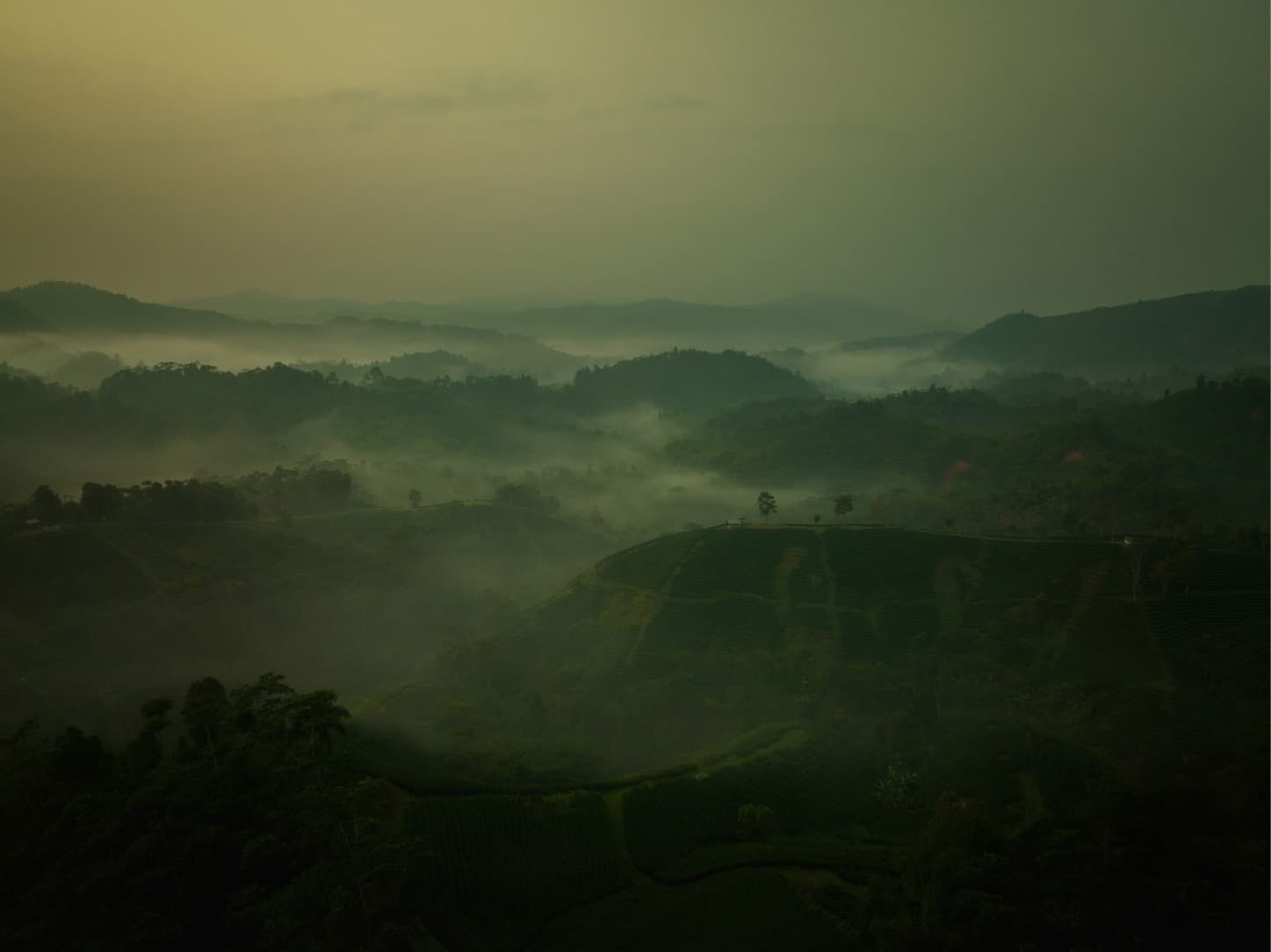
The rolling green hills do not disappoint: they appear to nestle into one another, creating a sense of unity further accentuated by the subtle veil of fog that gracefully spreads between them. Atop the trees, the profile of the higher hills takes shape – clear yet softened. The gradual shift of light paints the sky with hues of yellow, orange and rose as nature’s canvas evolves before our eyes. There is no rush, no imbalance, no sense of urgency in what we see. Our heartbeat slows, and so does our breathing. There is something disarming in the purity of the natural scene in front of us. We feel alive and connected in the deepest possible way. It feels as if our soul is embraced by this calming landscape. We smell the freshness of damp leaves as our fingertips slide between them. We listen to the sound of the tea plants holding their space against our body as we walk by. We feel all the feels and try to ingrain them in our memory. It is then that we realise that the experience of drinking tea will be forever changed.
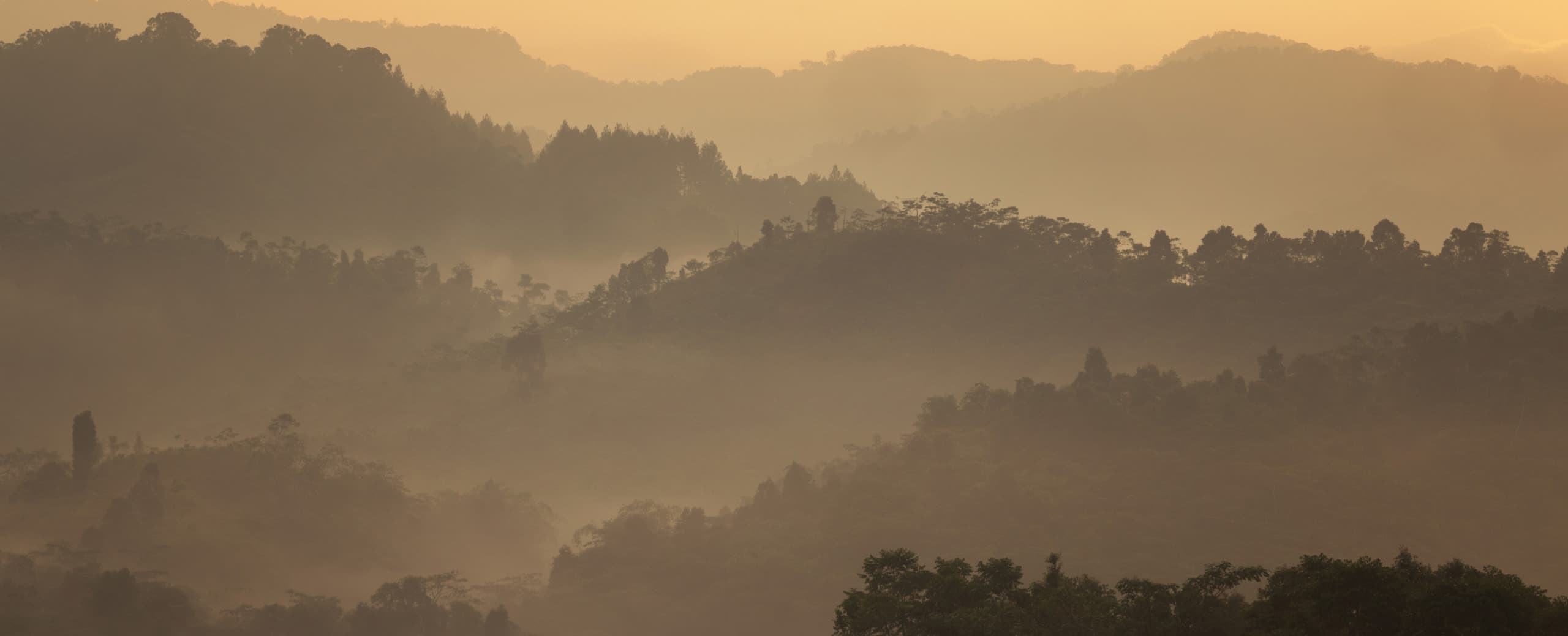
Tea was introduced to Indonesia by the Dutch in the 17th century during their quest to find supplies of valuable nutmeg, cloves and pepper. Java and other parts of the sprawling archipelago soon became part of the Dutch empire, which established an abundant spice trade and, about a century later, began to plant delicate tea seeds imported from northeast Asia in the fertile volcanic soils. This organic tea farm on Mount Halimun, which enlivens all of our senses as we stand in its terraced fields today, harks back to this time, when it was the first plantation in Indonesia. It was carefully chosen by Leo for East Java & Co’s tea selection of white, green, oolong and black varieties. For him and Yasmin, quality signifies the essence of pure flavour.
By now, the fog has mostly lifted, unveiling a gentle, light blue sky adorned with whisps of grey clouds. It is about 7 o’clock and the tea leaf pluckers are making their way through the narrow paths between the tea plants. Their hands move faster than our eyes can focus, yet every motion somehow appears like a caress. Only the young leaves are plucked, “because the tea’s quality is intrinsically tied to the excellence of the leaves,” Leo explains.
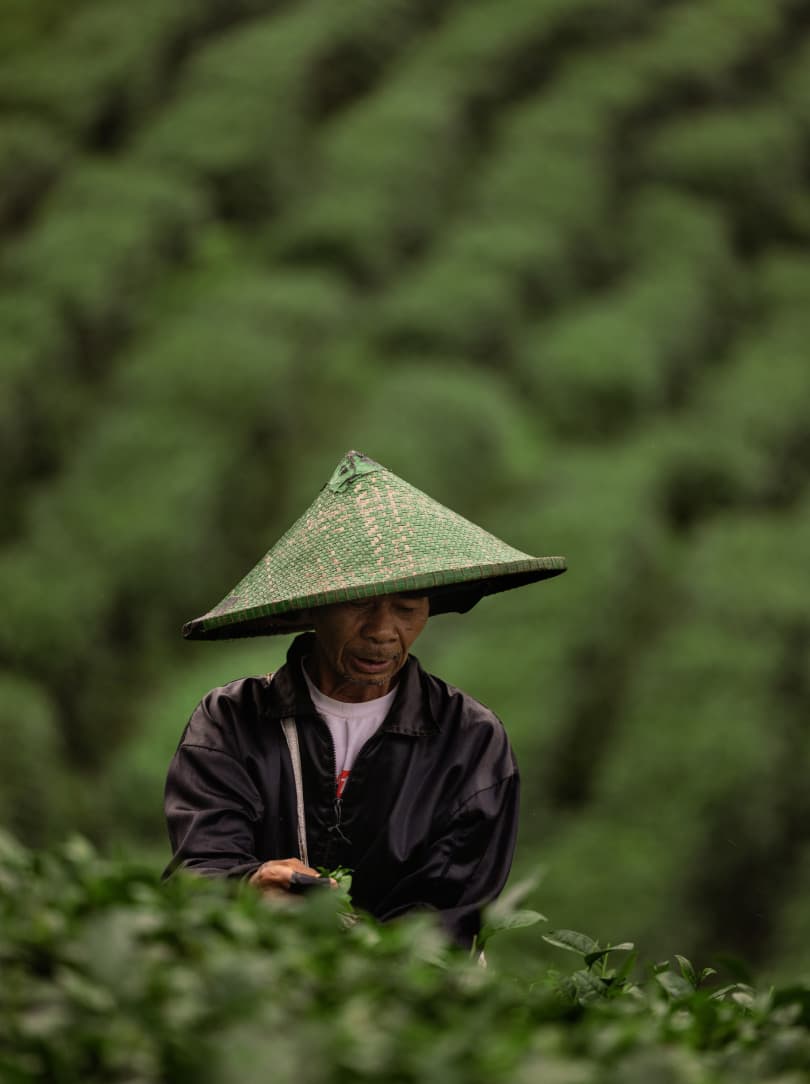
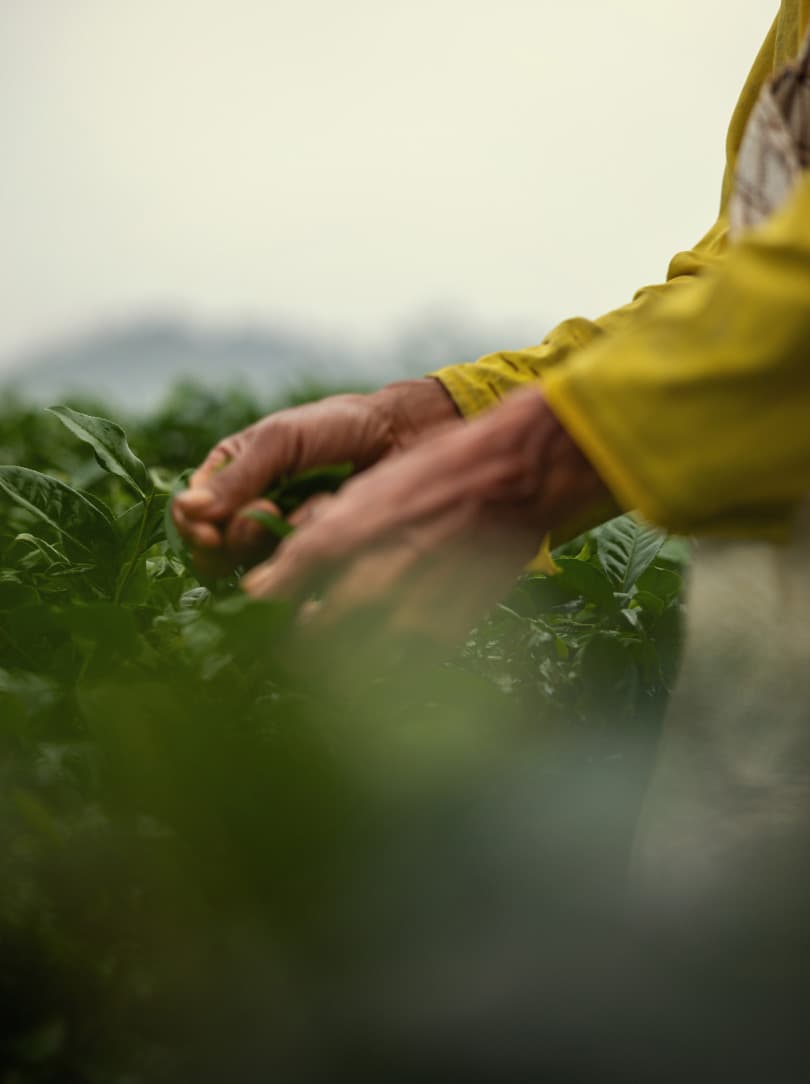
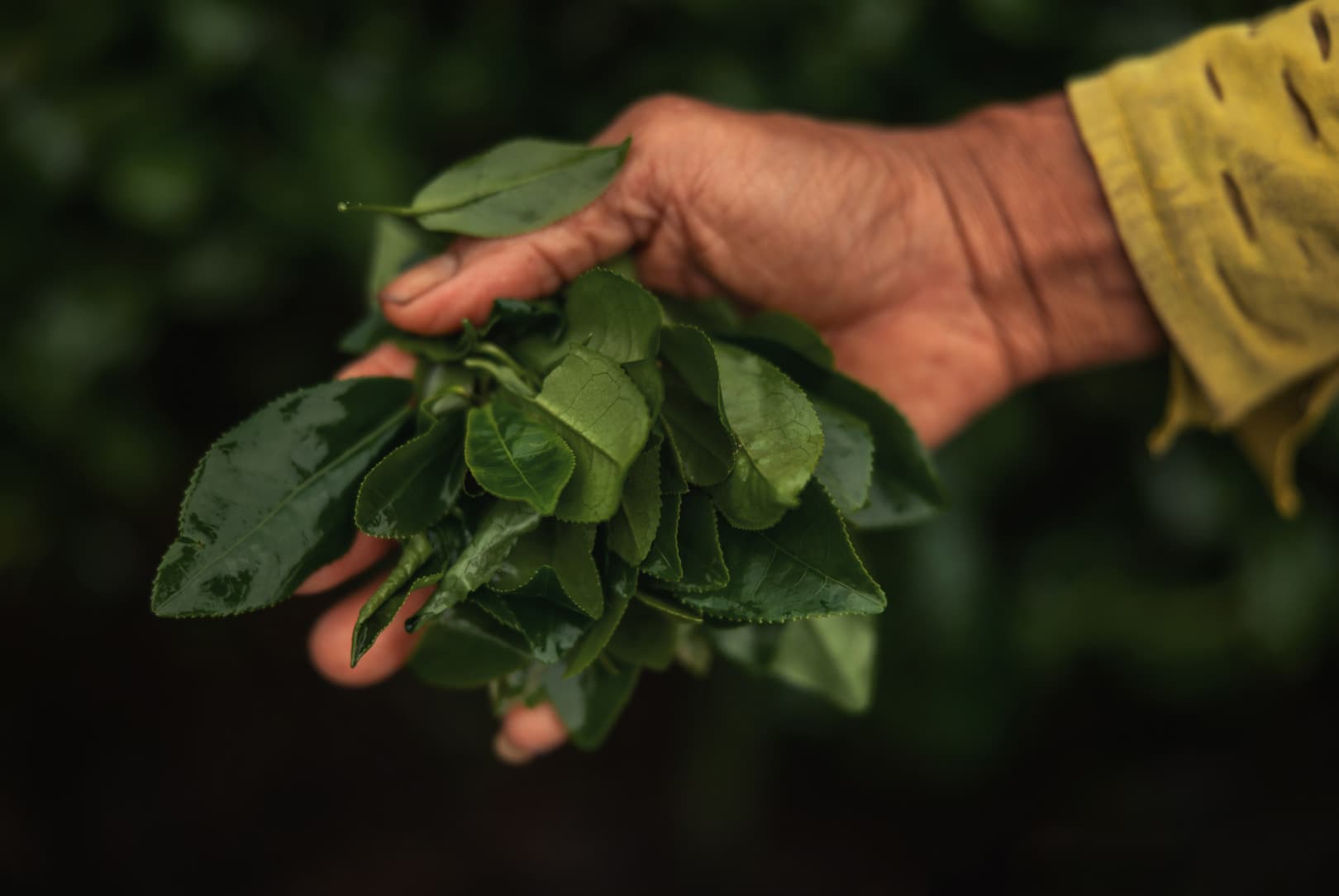
After the tea is harvested – filling large woven drawstring sacks, which are pulled closed, tied off in tightly looped knots and balanced, bulging, one at a time, on the back of a motorcycle for transportation away from the fields – the withering begins. First, the leaves are laid out on long tables, which are arranged in rows, inside a vast, meticulously clean shed-like structure. Then they are left to absorb the warm sunlight as it filters down onto them through the transparent-panelled corrugated roofing, allowing the process to continue year round, no matter whether it’s the wet or dry season. We are astonished when Leo tells us that all four varieties of tea produced here originate from the same plant, Camellia sinensis; it is the level of exposure to the air that determines which tea will be made.
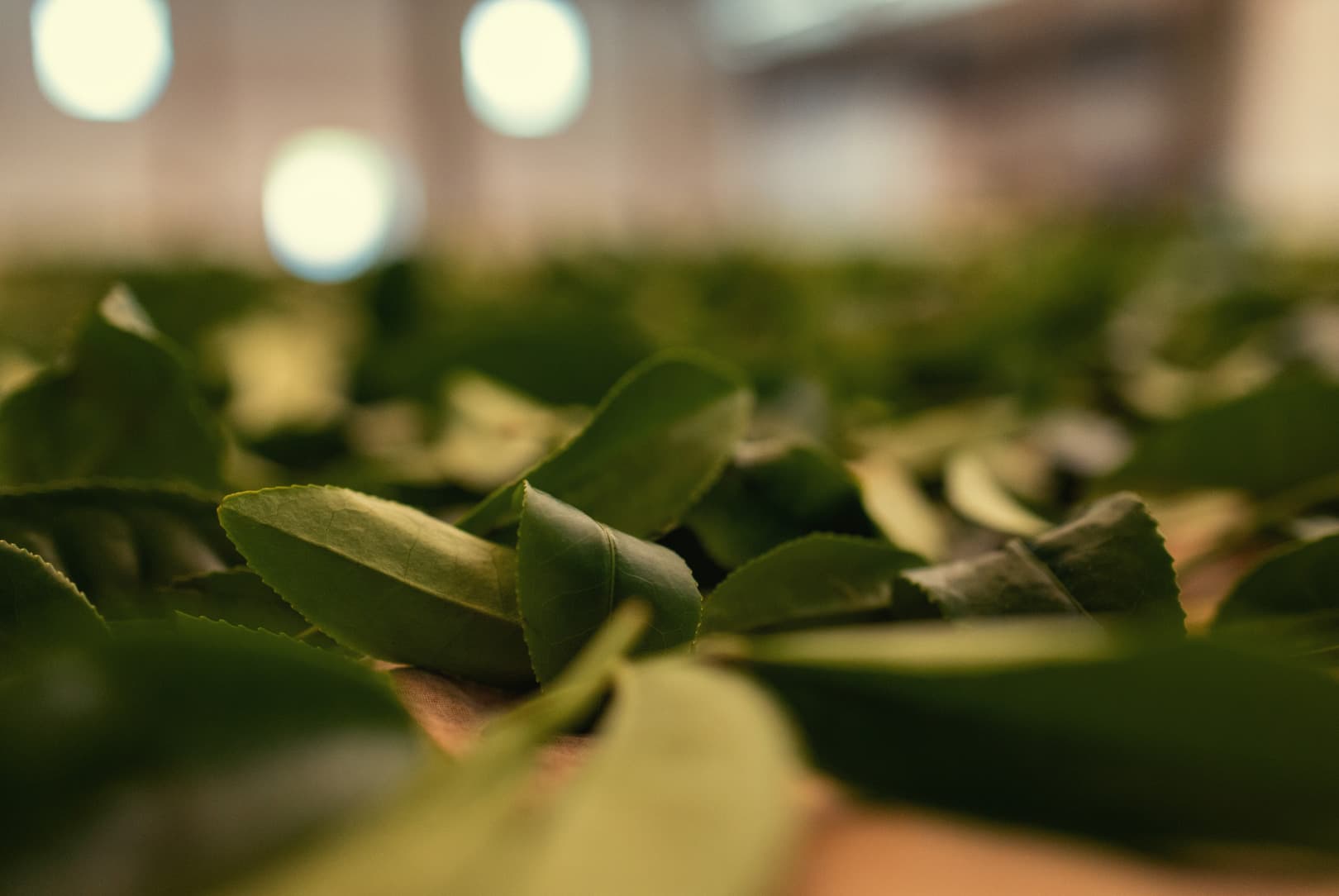
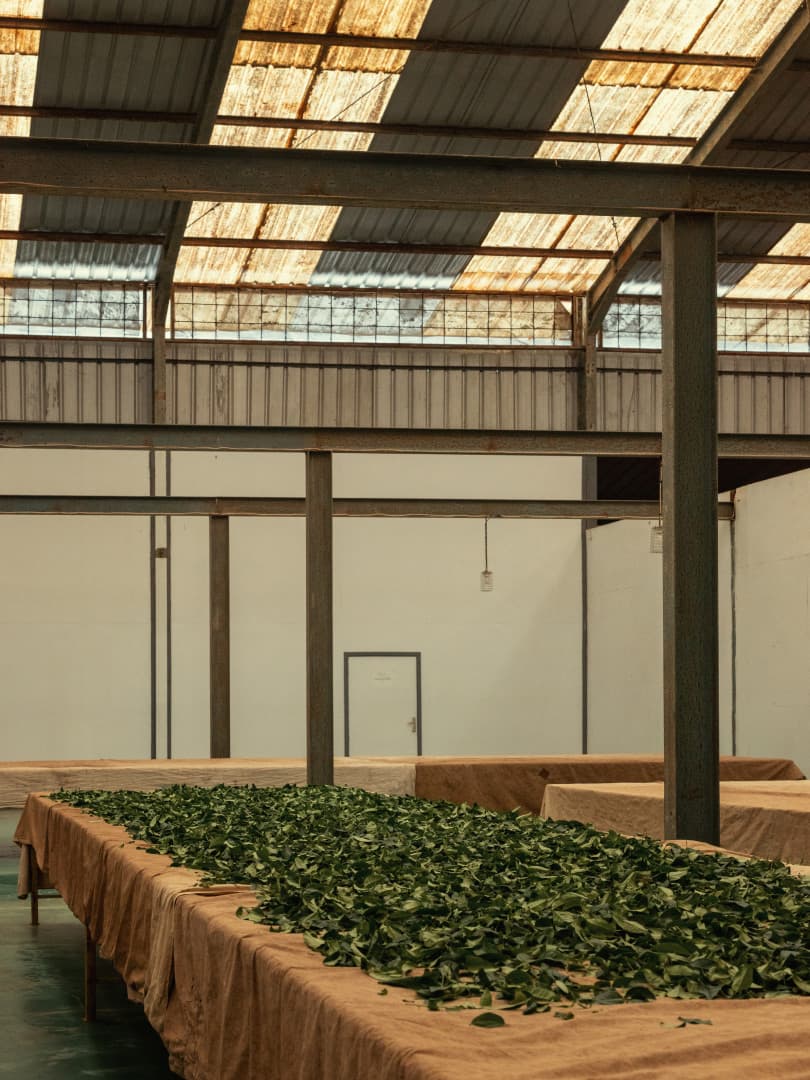
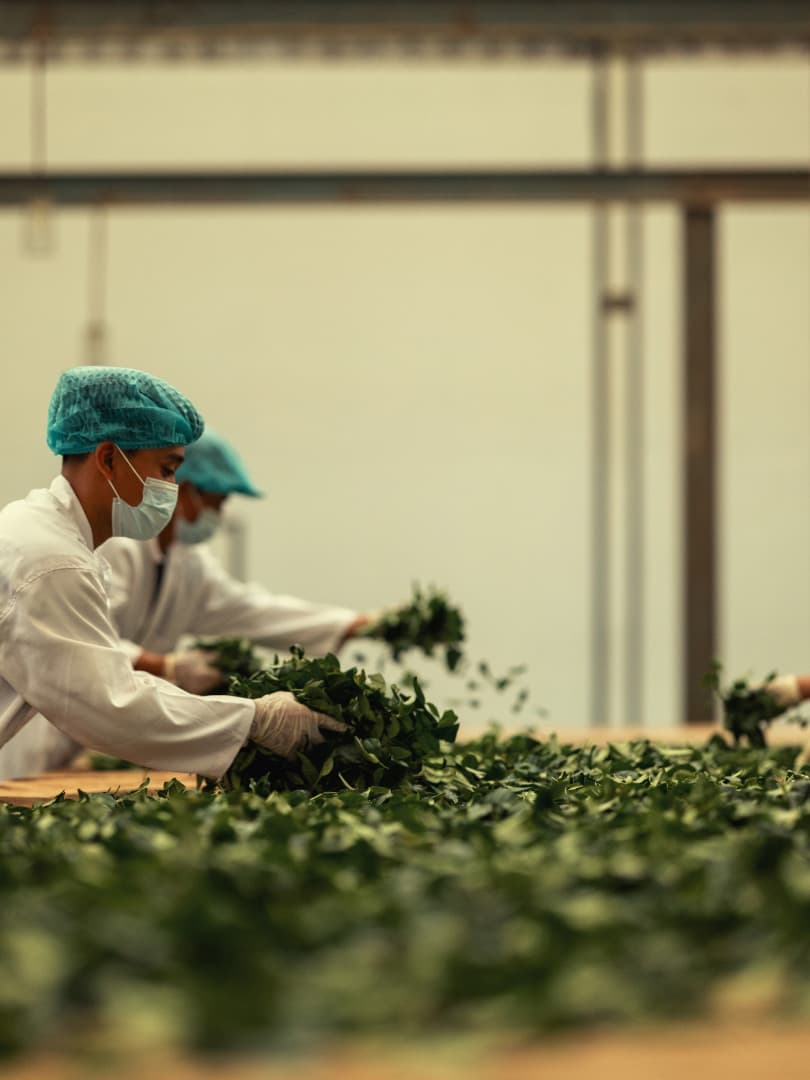
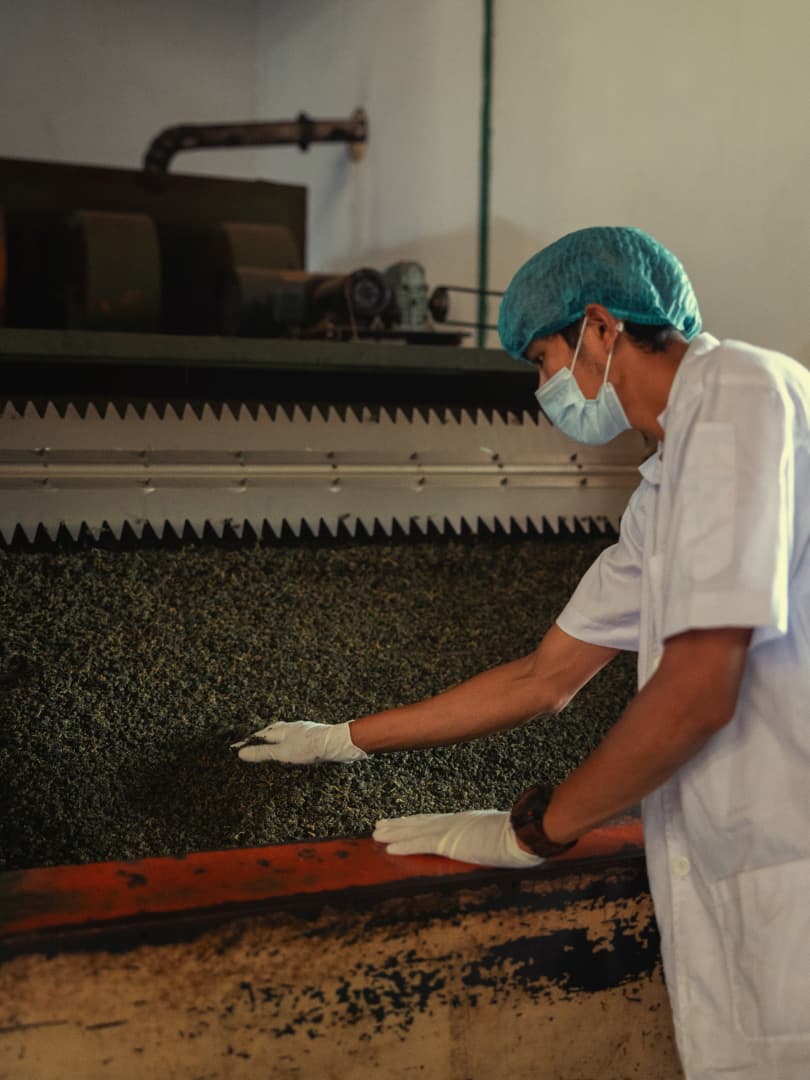
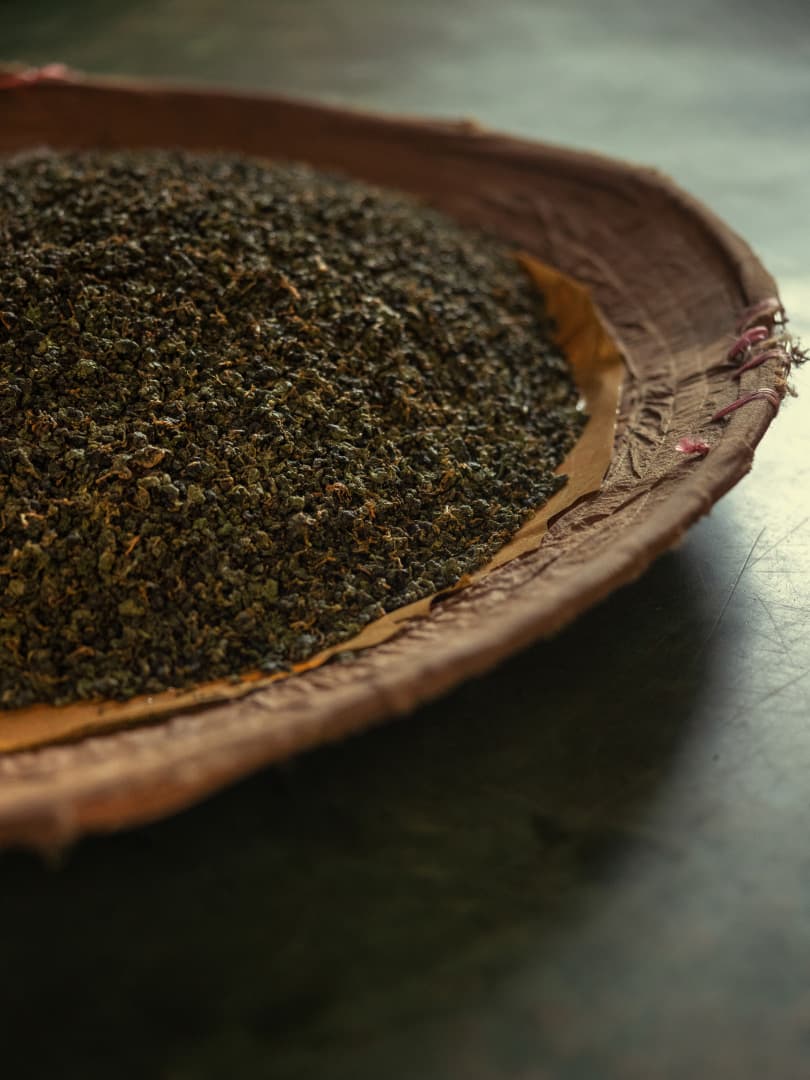
“There is as much art as there is science in tea production.”
LEO SCHWARZ, CO-FOUNDER EAST JAVA & CO
White and green tea undergo less oxidation than black or oolong and contain more polyphenols; these naturally occurring chemical compounds found in plants prevent free radicals from forming in the body and thus promote good health. Being fully oxidised, black tea contains fewer polyphenols, but this makes it no less enjoyable or appreciated. Oolong tea has the most complex aroma and can have different levels of oxidation, somewhere between green and black.
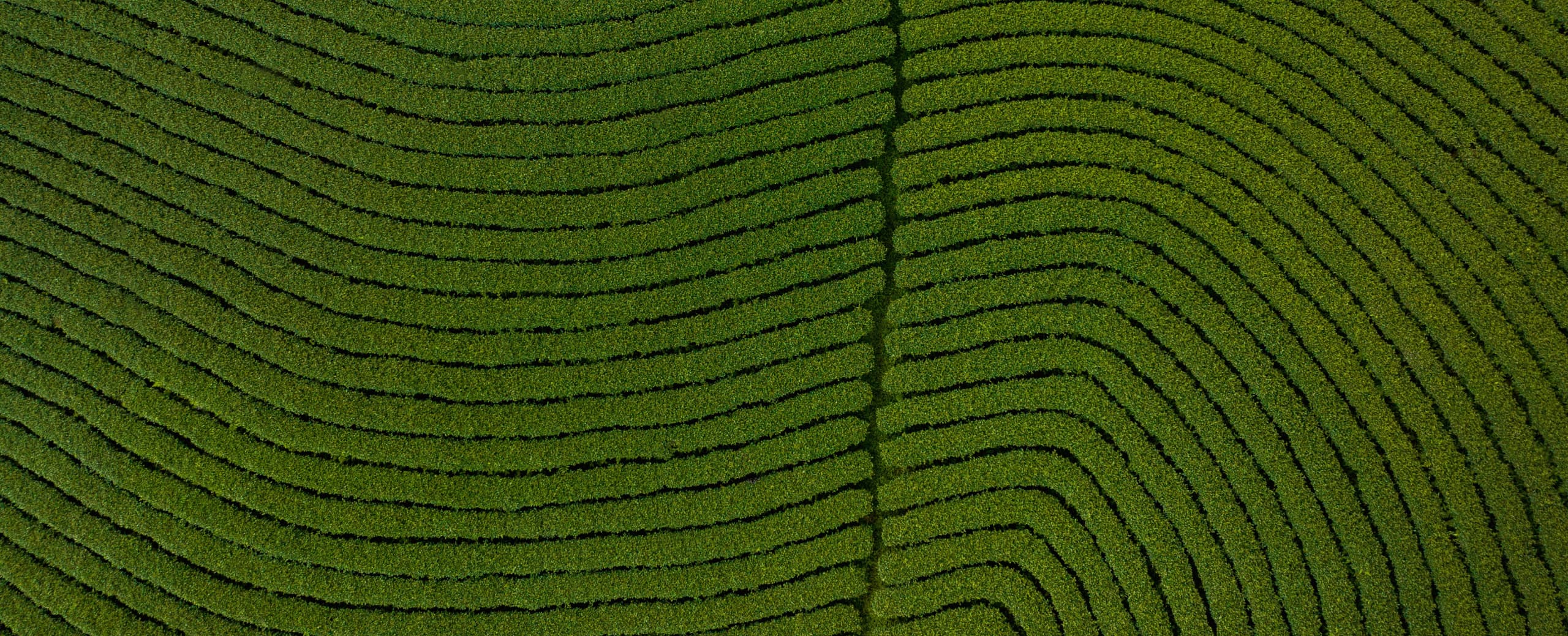
At East Java & Co, tea is a daily essential for the founders, both in the shop and in their home above it. Yasmin and Leo enjoy it mostly as a cold brew. It’s a mindful way to take tea and one that honours slowing down; to prepare an infusion, loose-leaf tea is steeped in cold water for at least 12 hours, or overnight. “By not heating the water, the tea retains its natural sweetness and avoids any hint of bitterness,” explains Leo, who favours a pure, authentic taste over anything else – in food, music and life.
The appearance and aroma of the tea leaves determine their readiness for the next step in the process. At the tea plantation, a single individual holds the authority to make this crucial decision – a right he has earned with more than 15 years’ experience here. ‘The nose’, as he is known, brings a nuanced, human element to the process. He scoops up bundles of leaves with his gloved hands from one of the many broad, stacked rattan trays, draws them close to his face and inhales deeply. A local to the West Java region, he is clearly well respected by the other plantation workers – who regard him with kindness and consideration – and passionate about his profession; his face lights up when talking us through his intrinsic methods, using evocative hand gestures to ensure we understand.
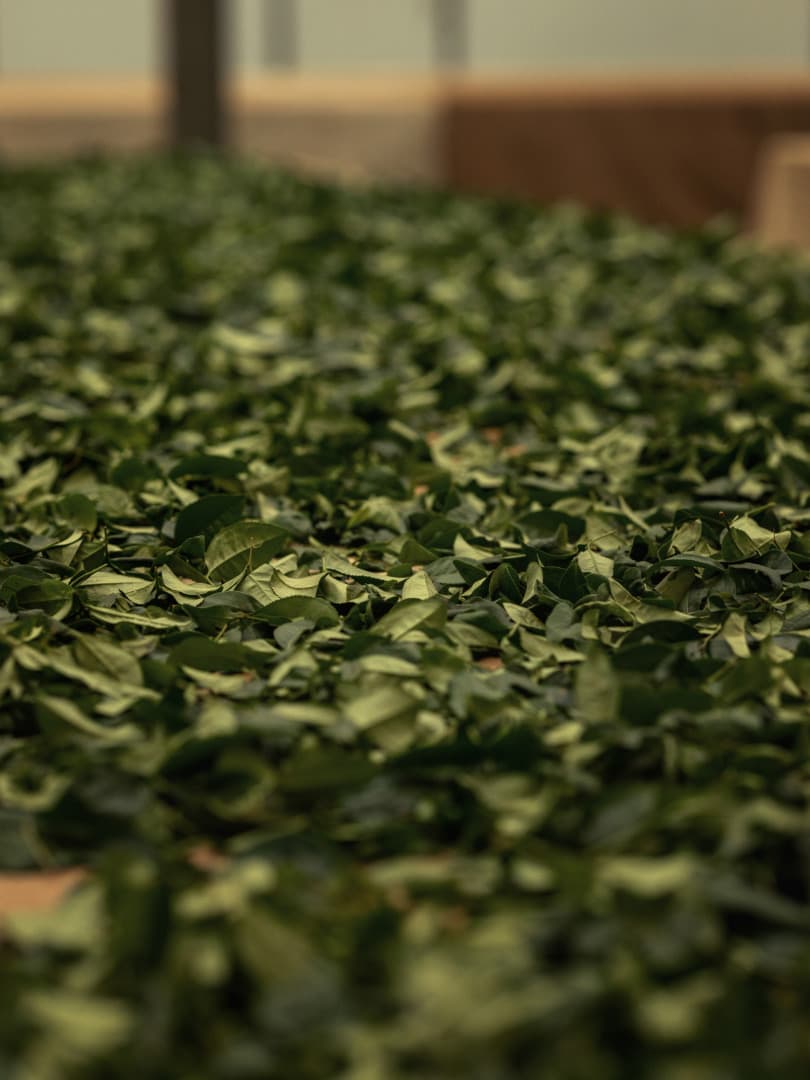
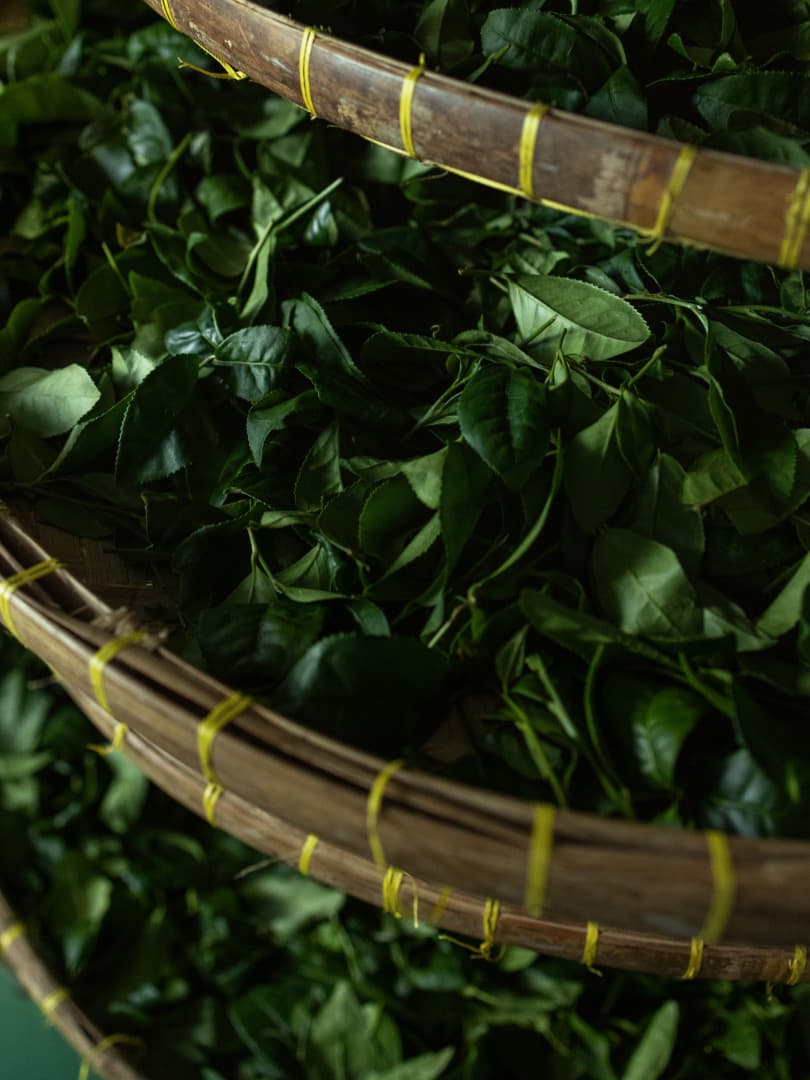
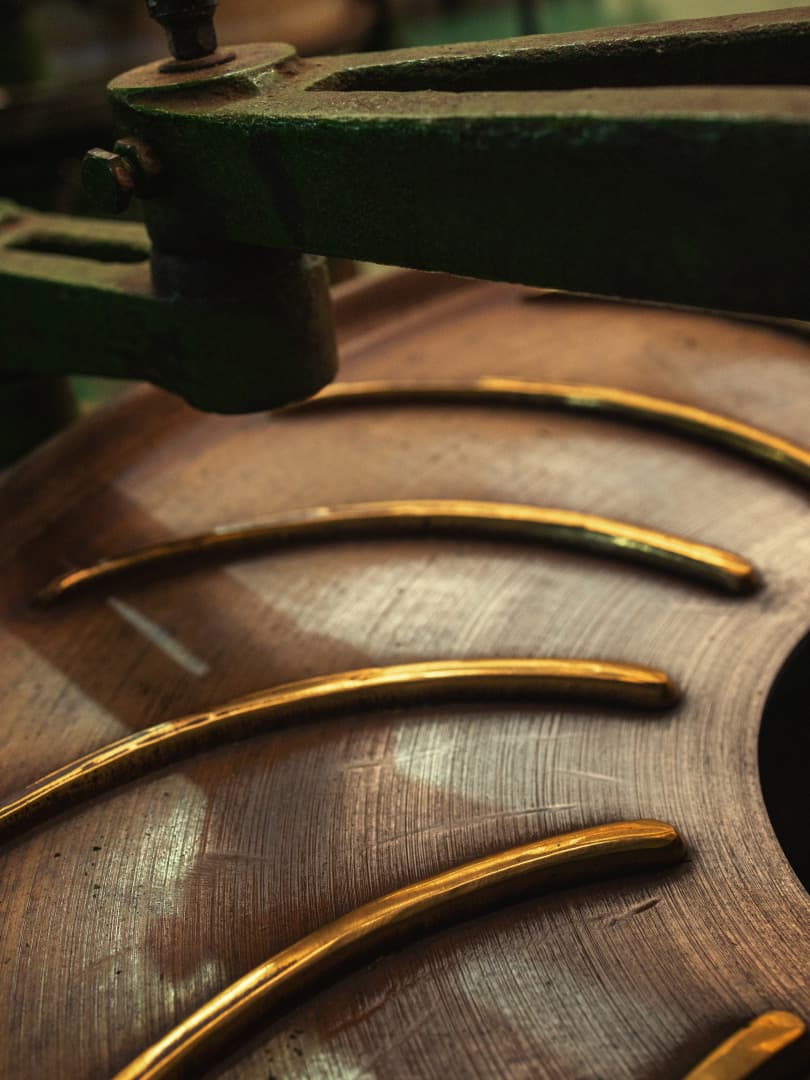
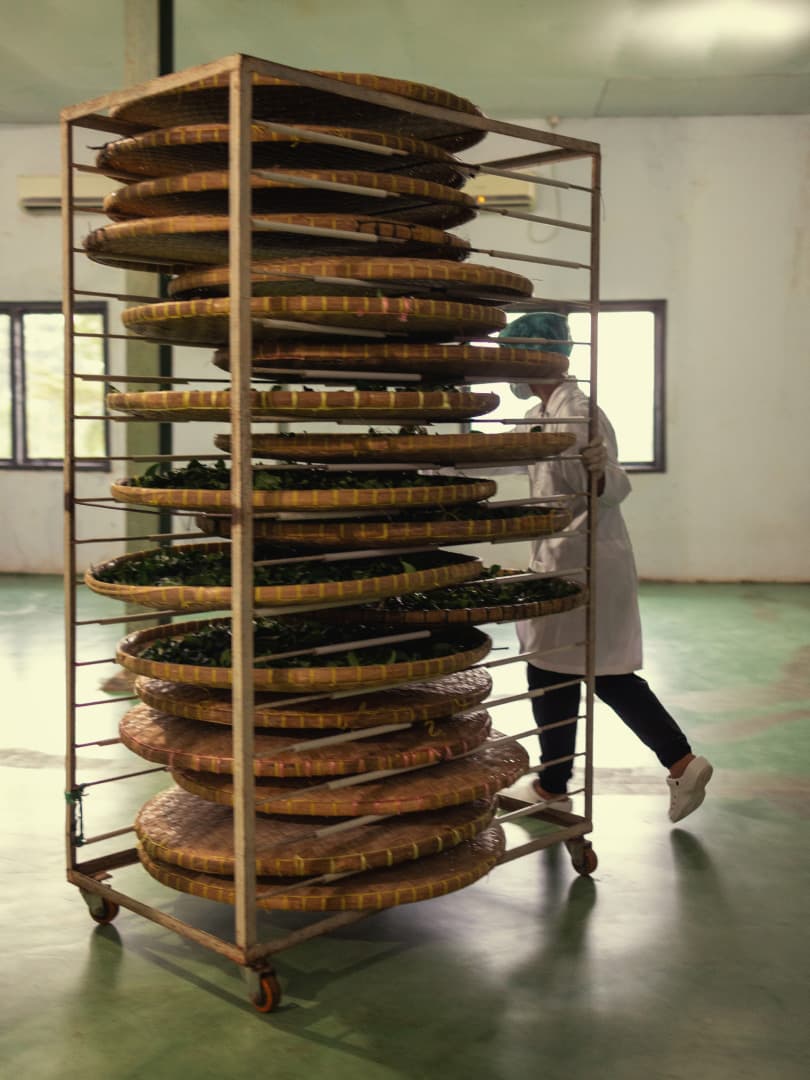
“There is as much art as there is science in tea production,” Leo tells us. Certain elements require the utmost precision and careful measurement, while others rely on the tea farmers’ seasoned expertise and intuitive understanding. In tea production, manual labour abounds, and the workers are booked on a daily basis on Mount Halimun. There is a captivating natural elegance to their simple, functional motions, with a continuous repetition that is almost soothing to behold. Perhaps it is the subtlety of their motions that entices us to perceive an added layer of care invested in each gesture.
“At times, tea can be sweet, while other times it carries a touch of bitterness. It can evoke joy or bring forth sadness. Tea is just like life itself.””
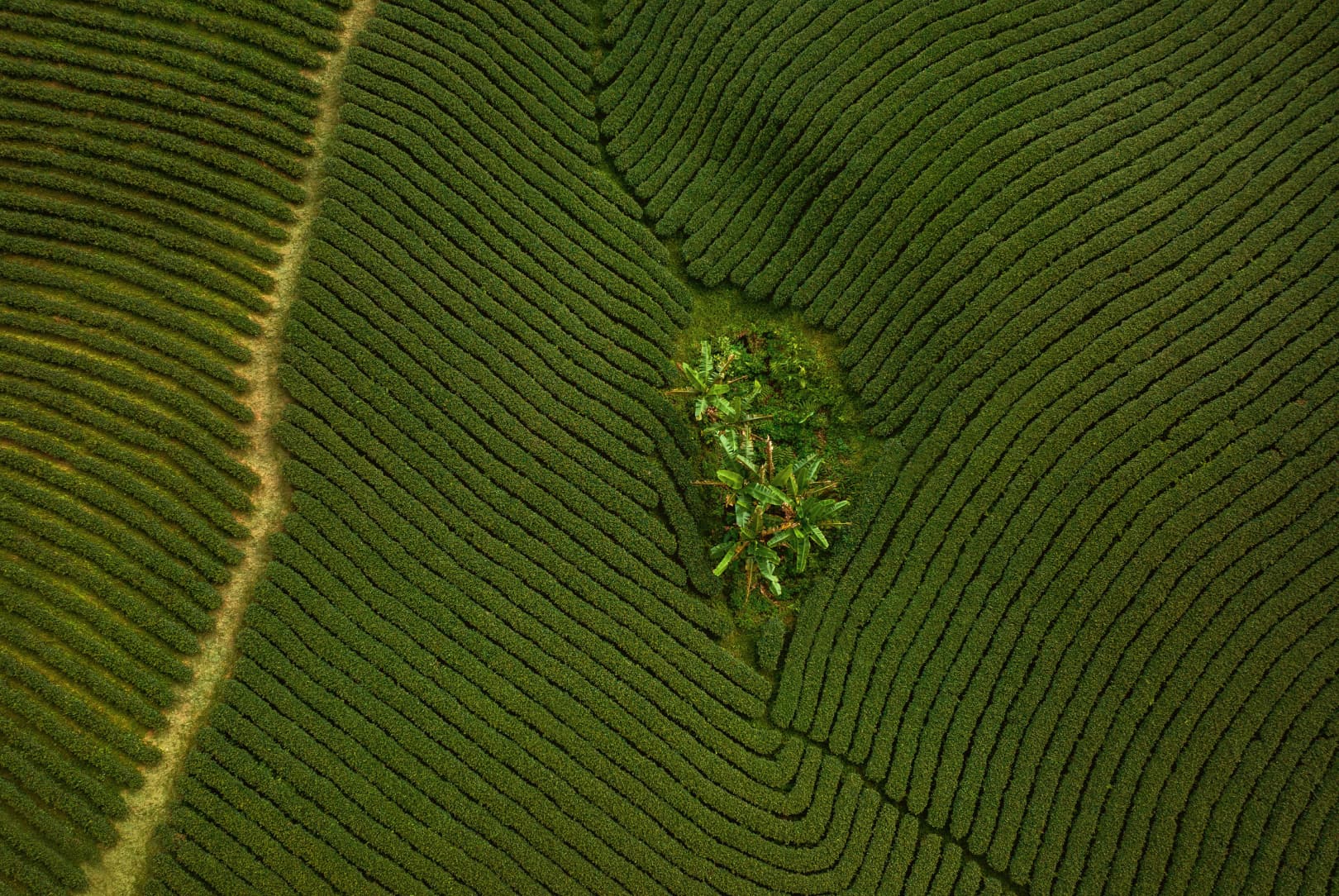
It is inching towards noon as we prepare to depart from the plantation; the cool dewiness of the morning has all but evaporated and been replaced by a blazing sun, high overhead and slightly obscured by a sultry haze. Just like when we began our journey to Mount Halimun from the bustling urban sprawl of Jakarta, we are struck again by how otherworldly it is here – untamed nature bordering neatly cultivated crop fields, the sweet humidity that hangs in the air, lightly clinging to our hair and tickling the tip of our nose, and the piercing tranquility. To imagine the journey of the leaves we saw plucked from the plants, rooted in volcanic soil, ending up in a fine porcelain tea cup in cosmopolitan homes round the globe, is extraordinary. The genuine satisfaction of savouring something thoughtfully and expertly crafted will from now on accompany our every future sip. Because care and attention to detail do taste better.